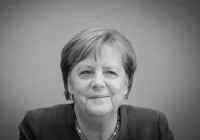
What Prigozhin Did in Putin’s Russia Was the Ultimate Betrayal
Russians have always had a penchant for rumor and conspiracies, underpinned by the presumption that official news is deeply doctored by the Kremlin. So it is not surprising that within hours of the first reports of a plane crashing with somebody as notorious as Yevgeny Prigozhin listed as a passenger, speculation spread like a Siberian wildfire. Perhaps he was not on the plane and had staged his death to disappear. Or maybe President Vladimir Putin now had Mr. Prigozhin in a secret dungeon. Or the Ukrainians on whom he unleashed his mercenaries blew the plane up.
Nothing seemed impossible with Mr.… Seguir leyendo »













